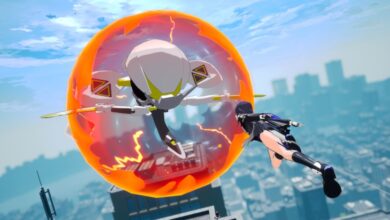
Summary
- Miyazaki believes children should limit anime consumption to prevent negative impacts on their well-being.
- Despite creating children’s films, Miyazaki aims to prioritize children’s health over the success of his work.
- Miyazaki’s films address mature themes, showing anime’s potential to be more than just entertainment.
Hayao Miyazaki, the legendary co-founder of Studio Ghibli, which is known for its children’s anime films, has stated that children should not watch anime. Miyazaki has long been revered for his unique ability to create films with a blend of profound storytelling and enchanting animation. His films, such as Princess Mononoke, Spirited Away, and My Neighbor Totoro are loved and celebrated by a dedicated fanbase worldwide for their artistic beauty and deep thematic content. Studio Ghibli, under Miyazaki’s direction, has produced many classic anime films that resonate with audiences of all ages.
In a 1999 interview with journalist Brian Camp, Miyazaki expressed his concerns about the impact of anime on children. When discussing the competition between his film Princess Mononoke and Pokémon the First Movie at the American box office, Miyazaki had some harsh words regarding children’s consumption of anime.
He stated that anime, “Gobbles children for breakfast and robs them of their time and their freedom far too much. I realize that I belong to part of that contradiction, but I think that one great animated film per year is perfectly plenty for a child.”

Related
Hayao Miyazaki Has An Intense Reaction To AI Art
The Oscar-winning Studio Ghibli co-founder says that he will never apply AI art to his work and that the art form is an insult to life itself.
Miyazaki’s Concern for Children’s Health
Hayao Miyazaki Does Not Want Anime To Affect Children’s Wellbeing
Miyazaki’s critique of anime stems from his genuine concern for the physical and mental well-being of children. He highlights the passive nature of sitting and watching television, saying that it distracts children from more active, imaginative play. This sentiment of Miyazaki is rooted in his belief that a life without play and adventures can stifle creativity and even hinder physical development. Through his labeling of children who watch anime as “lazy”, Miyazaki emphasizes the potential negative consequences of having too much screen time, a concern that is highly warranted in this digital age.
There is, however, an internet irony in Miyazaki’s critique, given that many of his own films, such as My Neighbor Totoro and Ponyo, are beloved children’s movies. With many of Miyazaki’s Studio Ghibli films being targeted towards a younger audience through their characters and themes, it brings into question why he would make such a public statement. The answer is that Miyazaki cares more about the health and wellness of children than the success of his anime films, showing how he truly makes his stories out of creativity and passion instead of the desire for money.
Miyazaki’s Films Tackle Mature Themes
Despite the Target Demogrpahic Being Younger Audiences, Miyazaki Isn’t Afraid To Tackle Darker Subjects
These anime films, while lighthearted and aimed at a younger audience, still carry significant weight in terms of the themes that they explore. My Neighbor Totoro for instance, dives into themes of environmentalism, the power of imagination, and coping with family illness. Similarly, Ponyo touches upon the themes of ecological balance and the innocence and purity of childhood love. Despite their whimsical and magical elements, these anime children’s films are imbued with layers of meaning that can resonate with both children and adults.
This dual approach to anime, with both an entertainment and educational balance in mind, demonstrates the potential that anime has to be more than just a passive pastime.
Miyazaki’s critique of anime consumption by children showcases his broader concern about the impact of the media on young minds. His films, though often targeted at children, are crafted with an awareness of their potential to shape thoughts and behaviors. This dual approach to anime, with both an entertainment and educational balance in mind, demonstrates the potential that anime has to be more than just a passive pastime. By inserting mature themes within captivating stories, Miyazaki challenges viewers, both young and old, to think critically about the world.
Read More





